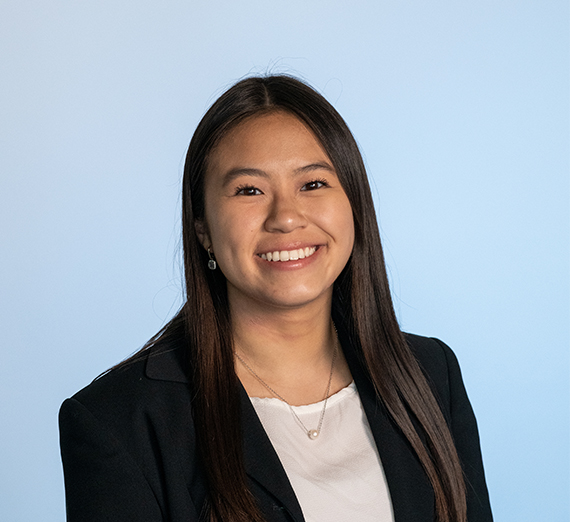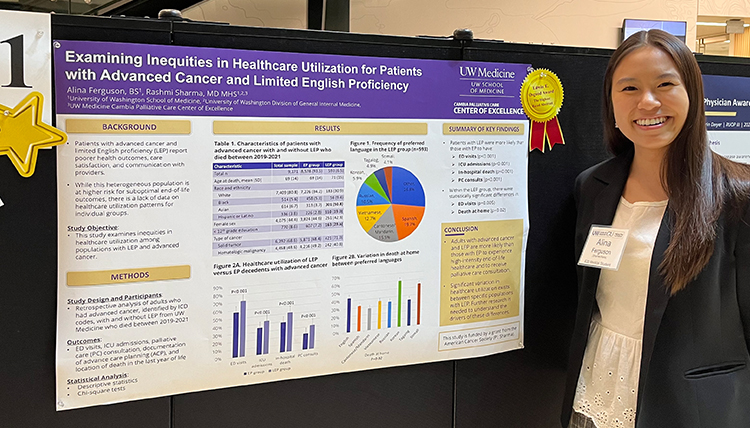Improving Health Care for Patients with Limited English

Alina Ferguson won the Edwin E. Osgood Award and will present her abstract in January at the Western Medical Research Conference in California.
As a second-generation Vietnamese-American, health care diversity has always interested Alina Ferguson. The second-year student at the University of Washington School of Medicine-Spokane minored in diversity studies as an undergrad.
So, this summer, when the opportunity arose to research health care inequities for patients with advanced cancer and limited English proficiency, she jumped at the chance.
Her experience gave her insight into how language barriers can affect medical treatment, and thus, the importance of interpreter services, cultural humility and cultural competence in meeting the needs of the patient.
Working with Rashmi Sharma, a palliative care physician and health services researcher at the UW School of Medicine-Seattle, proved to be a great fit for the student.
“We looked at the outcomes in end-of-life care for those with limited English,” explained Ferguson. “Different cultures are represented within the group and we’re developing the discussion to investigate what impact cultural background has for these patients.”
Research has already shown that patients with advanced cancer and limited English proficiency report poorer health outcomes, care satisfaction, and communication with providers. Discovering how different cultures view death and dying is crucial in offering optimal care.
“For example, do they prefer to die at home or in the hospital? We’re also looking at how involved family members are in end-of-life care and what weight their involvement carries,” she said. “Once we understand these factors, we can identify the appropriate resources in the area.”
The Edwin E. Osgood Award (for the highest-scoring student abstract overall) surprised Ferguson. She will present in March at the Annual Assembly of Hospice and Palliative Care in Phoenix, in addition to the Western Medical Research Conference in California.
“I was so shocked and humbled,” she said.
While she won the top award, she won’t be traveling to California alone. UWSOM-Spokane is well-represented, with16 additional students presenting at the conference on topics ranging from adolescent medicine/ pediatrics and neonatology/perinatal biology to diversity, equity and inclusion research and infectious diseases; many resulting from community research projects in Spokane.
Ferguson found her project especially meaningful.
“Proving that this disparity exists and putting numbers to it was eye-opening,” she said. “I’m hopeful that it will drive policy change and make health care more equitable for diverse populations.”
ABOUT THE UW-GU HEALTH PARTNERSHIP
The University of Washington School of Medicine and Gonzaga University formed a Health Partnership in 2016 with a vision to improve health and prosperity throughout eastern Washington by transforming medical education, research and innovation. The combined strengths of each institution -- deep community roots and world-class health and medical education – and the vast network of students, faculty and health care professionals is creating an impact by preparing the next generation of health care professionals to advance discovery and develop new ways to care for patients.

